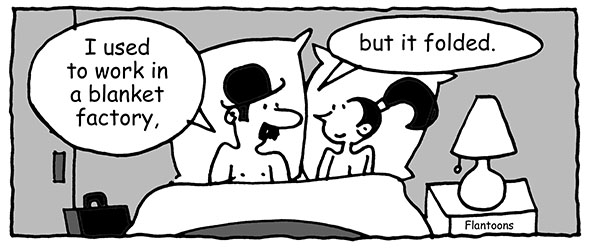
The preposition 'to' shows movement to a specific place or event.
I’m travelling to Spain next week.
I need to go to the bank.
Can you tell me the way to the post office?
Are you going to the party?
I’ve never been to a rugby match.
What time do you go to work?
We also use 'to' for movement towards a person or group of people:
He came up to me and started a conversation with me
The word enough can be used as an adjective, an adverb or with a noun. It can even be used as a pronoun.
Enough with an adjective
She wasn't tall enough to become a flight attendant.
This piece of writing isn’t good enough.
We have another metaphor mix for you! It would be a shame to stop at one set, now wouldn't it?
Remember: Just like a simile, the non-literal figure of speech referred to as a metaphor also compares two things, but it does so in a more direct way, this time without using as or like.
Two examples:
Christian has a heart of gold = Christian is very kind, generous or sincere
Don’t call him a slowcoach! = a person who acts or moves slowly
The perfect aspect
In American English it is very common to use the simple past tense instead of the present perfect which speakers of British English might use.
American English
I feel tired. I worked too much. I think I lost my keys. Did you see them anywhere?
Are you going to the show? No I already went.
You're looking for Jane. I just spoke to her.
Look at the linking words in these sentences:
"They arrived home just as I was about to call the police."
just as – at the same time or at the start of another action.
"The workers stopped as soon as the bell rang."
as soon as – immediately after
As many of you might already know, knowing how to spell will improve your reading and writing skills. That means you will have less problems with vocabulary and comprehension.
Sharpen up your spelling skills with this quiz. All you have to do is choose the correct spelling of the eight words below. Good luck!
Lesson by Krista
Look at how these sentences are linked:
1 Because it was raining, we stayed at home.
2 Because of the rain, we stayed at home.
3 Due to the rain, we stayed at home.
(Because + clause) – (Because of + noun) (Due + to + noun)

Today's cartoon is based on two meanings of fold.
1 - When you fold a blanket, paper or cloth you bend it so that one part of it lies flat on top of another part.
"Origami is the traditional Japanese art of paper folding to make designs without cutting the paper."
"Fold up the clothes and put them away."
Here are some adjectives and the prepositions we use with them. There is no real system and so the only way to learn them is to treat them as a 'fixed combination' and record them as you meet them when you read or listen. There are many adjective preposition combinations which are not show here.
I'm good at learning languages but bad at maths.
He's terrible at expressing his ideas.
As and Like are both used to compare situations or actions. But here are some differences:
We use as to talk about something we do or how something is used.
I worked as a graphic designer for eight years.
She used her jacket as an umbrella when it started raining.
'As adjective as' is used to compare things or people.
It's not as cold as it used to be.
He studied as hard as he could for the exam.